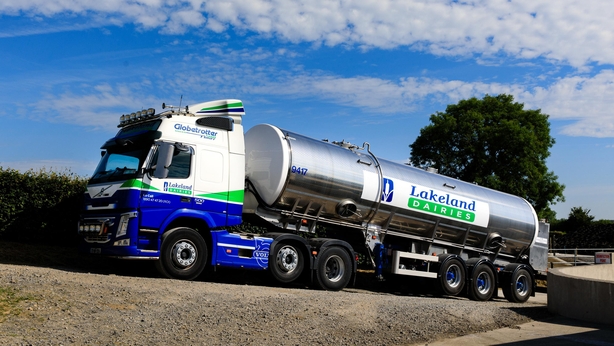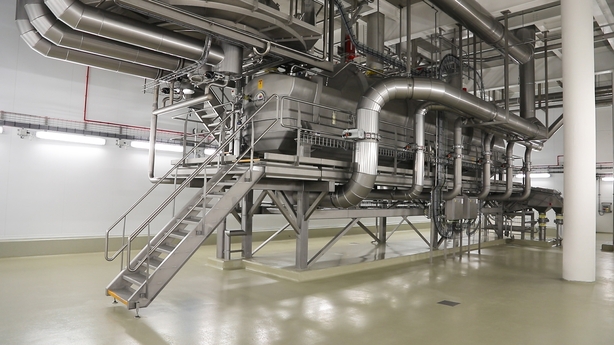Lakeland Dairies said its revenues for 2022 increased by 45% to €1.9 billion across its four operating divisions - Food Ingredients, Foodservice, Consumer Foods and Agribusiness.
This marked an increase of €590m on the previous year's revenues of €1.3 billion.
Lakeland reported an operating profit of €32.5m, an increase of 15% on 2021. It said its EBITDA (earnings before interest, tax, depreciation and amortisation) for 2022 came in €60.2m, up by €4.8m on 2021.
During the year, Lakeland Dairies distributed €1.1 billion in payments to milk supplying farms across 16 counties across the island of Ireland.
Lakeland Dairies said it closed the year with a strong balance sheet including shareholders' funds of €273m.
Farmer-owned Lakeland Dairies is the largest cross-border dairy processing co-operative on the island of Ireland.
It collects over 2 billion litres of milk from 3,200 farm families across 16 counties in Northern Ireland and the Republic of Ireland.
The co-operative has a portfolio of 240 different dairy products made on eight highly efficient processing sites which it exports to over 100 countries worldwide.
Lakeland Dairies group chief executive Colin Kelly said today's positive results are based on a strong, progressive and resilient performance, underpinned by the overall quality of its milk producers, people and operations
He said they were achieved despite a deeply competitive and uncertain global market environment.
"Lakeland Dairies' 3,200 farm families produced over 2 billion litres of top-quality milk, which was directed towards value-added product categories and market segments, generating optimal returns," Mr Kelly said.
"The impact of geopolitical problems and continuing economic uncertainty were seen globally with serious inflationary effects across every cost base, at farm and organisational level. Nevertheless, the dairy markets yielded strong returns and Lakeland Dairies was able to pay a very competitive milk price to our milk producers," he added.
Mr Kelly said that market conditions for 2023 are proving much tougher for Lakelands' suppliers.

He said they will remain contingent on global factors including the overall balance of supply and demand, across its extensive product portfolio, while economic uncertainty remains a serious concern, with the potential for continued market volatility.
Lakeland Dairies Chairman Niall Matthews said that 2022 was an exceptional year with strong market returns, increased revenues and high milk prices.
"This was welcomed by milk producers in the context of very high input costs, rampant inflation and an overall cost-of-living crisis in economies across the world," he added.
Breaking down its divisions, Lakeland said that revenues at its Food Ingredient business increased by 43% to €1.19 billion.
Lakeland said it processed extra milk volumes while meeting consistently high demand across its dairy food ingredients portfolio, while it also continued to invest in plant optimisation and efficiencies.
The co-operative exported record volumes of milk powders and butter during the year, benefiting also from increased market prices.
Foodservice revenues increased by 39% to €310.9m, despite a difficult period for the global foodservice sector with continuing pandemic lockdowns and the war in Ukraine presenting challenges around cost inflation, supply chain disruption and fears of recession.
"Despite this, with a resumption of traditional service models and consumer behaviour, confidence returned to the sector enabling a more sustainable platform for business growth and development," Lakeland said.

Meanwhile, its Consumer Foods division reported a 60% rise in revenue to €272.9m, up by €102.7m on the 2021 figure of €170.2m.
It said this includes positive organic growth across Lakeland Dairies' consumer portfolio of products including new listings and price adjustments which were necessary to address key inflationary pressures.
Finally, Lakeland Agri increased revenues by 45% to €125.3m due to a strong operational performance and solid demand.
Lakeland said that 2022 was challenging given overall market volatility, including supply chain disruption due to the war in Ukraine and unprecedented increases in the cost of energy.
It said that while raw material costs increased significantly and this influenced animal feed prices, Lakeland Agri sought to minimise increases for all customers.

